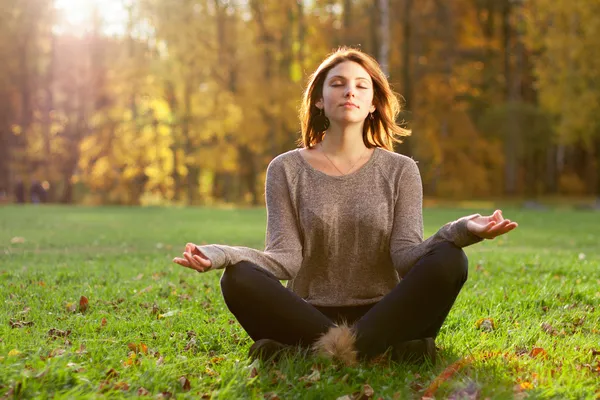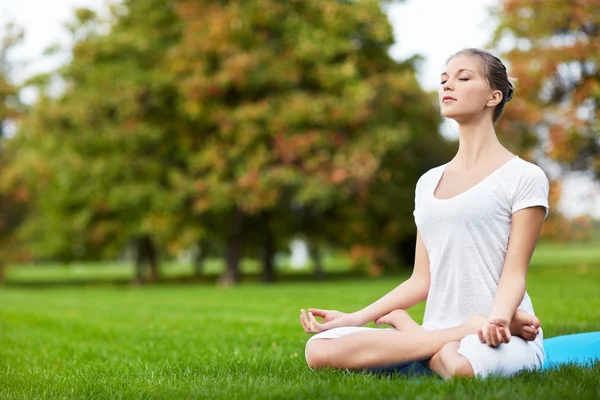
In practice, meditation provides mental clarity, emotional balance, and overall well-being. Through many spiritual or esoteric traditions, it has today translated to reducing stress and improving focus. To become more mindful and peaceful in life, one needs to know the various types of meditation, what their benefits are, and how they can be brought into one’s life stage if someone is a beginner or an experienced practitioner.
What is meditation and how does it work?
Meditation is a mental practice that involves focusing attention and eliminating distractions to achieve a state of calm and clarity. It works by calming the mind, reducing stress, and enhancing awareness of the present moment.
A meditation trains one’s mind to focus, drawing out distractions. Sitting comfortably and concentrating on breathing or a mantra or object, then redirecting it when lost in meditation, calms mental chatter and reduces stress, promoting emotional regulation.
It really enhances a person’s ability to maintain a high consciousness of what is going on in their head and heart, thus helping them be able to stay really centered and present in life. There are ways that are simple and powerful tools to help cultivate emotional and mental well-being.
What are the benefits of practicing meditation?
The benefits of practicing meditation include reduced stress, improved focus, and enhanced emotional well-being. It can also lower anxiety, promote better sleep, and increase self-awareness by fostering a calm and centered mind.
On both the mental and the physical side, meditation goes hand-in-hand. On the mental side, it reduces stress by lowering the level of cortisol, improving one’s focus, and even regulating emotions. It enables the practitioner not to engage in anxiety but to reduce symptoms of depression and have a brighter view of things.
The physical effects include lowering blood pressure, improvement in quality of sleep, and strengthening immunity. It also increases one’s awareness of oneself, so they can recognize more the mechanisms of their minds, what they feel, and what they react to, making them more mindful of the choices they make. And these eventually keep piling up in the long run, eventually leading to promoting resilience, emotional balance, and further well-being overall.

What are the different types of meditation?
There are several types of meditation, including mindfulness meditation, transcendental meditation, loving-kindness meditation, and body scan meditation. Each type focuses on different aspects, such as breath awareness, mental repetition, or developing compassion.
These different forms of meditation are meant for different purposes too. Mindfulness meditation deals with moving your focus to the present moment and simply watching mental activity without judging it. Transcendental meditation is notable for a lack of any muscle activity and cycling in thoughts – it only requires and consists of mentally repeating a word, which calms down the mind.
Loving-kindness mediation also known as Metta is aimed at decisively augmenting one’s tenderness and affection towards self and others. Body scan meditation induces relaxation mainly by shifting attention from moment to moment to different areas of the body. The benefits of each type are multitudinal, and it’s up to practitioners what their aim is: less stressful life, increase in attention span, control over emotions, or all at once.
How often should you meditate for optimal results?
For optimal results, meditating 10-20 minutes daily is recommended. Consistency is key and short, regular sessions can be more effective than longer, infrequent ones for building mindfulness and mental clarity.
For most people, a good time to meditate is 10-20 minutes a day. Even a minute or two may be helpful though. The idea is constancy–to assist in cultivating mindfulness and mental clarity over time. Some people can be well served by longer sessions, especially as their practice deepens.
But short, daily meditations can work wonderfully. You need to figure out what’s going to fit your life, but then gradually lengthen, if you like. Regular and consistent meditation has a cumulative effect that rids one of stress, improves his or her focus capacity, and enhances the aspect of overall well-being.
How can beginners start practicing meditation?
Beginners can start practicing meditation by setting aside a quiet space, focusing on their breath, and gradually increasing the time spent meditating. Starting with 5-10 minutes and working up to longer sessions can build consistency and comfort.
For beginners, it can be simple to initiate a practice of meditation. One simple thing is to choose a quiet comfortable space where you will not be disturbed. Sit or lie down, close your eyes, and listen to your breath. When a thought appears, gently refocus your attention on breathing without judgment.
Start from 5-10 minutes and increase that as you get more comfortable doing so. Guided meditations are also online available via apps or videos that can help beginners stay focused and have a routine. Consistency, in the long run, leads to deep meditation practice and mindfulness.

What is mindfulness meditation and how is it practiced?
Mindfulness meditation is a practice of paying attention to the present moment without judgment. It involves focusing on your breath, body sensations, or thoughts, observing them as they come and go without getting attached.
Mindfulness meditation is based on the belief of fully remaining in the present moment. People practicing mindfulness start with focusing on their breath, sensations in the body, or thoughts. If a thought appears in the mind, it needs to be released without attaching any judgment or reaction, and thus gently refocus your attention back on the breath.
It helps in cultivating the awareness regarding one’s thoughts, emotions, and surroundings in a non-reactive way. Mindfulness meditation can be done anywhere and for as long or short a period of time while reducing stress levels and increasing emotional regulation by achieving improved clarity in the mind in general.
Can meditation improve mental health?
Meditation can significantly improve mental health by reducing anxiety, lowering stress levels, and enhancing emotional regulation. It promotes mindfulness, which helps individuals manage negative thoughts and foster a more positive mental outlook.
Improvement of mental health through meditation can be attributed to the fact that it is one of the best stress, anxiety, and depression symptom minimizers. Through mindfulness, meditation teaches people to be present and change their way of thinking. Thus, regular meditation encourages emotional regulation by training the mind to step back and react to his or her feelings much more calmly.
Furthermore, it was established to trigger the release of neurotransmitters like serotonin and dopamine, which give a person good moods. So, meditation slowly gives one resistance to stress and results in a better-balanced frame of mind with positive aspects, placing it as one of the most effective tools for mental health maintenance.
In Conclusion
Meditation is a mind-bending practice, absolutely holistic, with many types of benefits to the human body and mind. If you’re searching for stress relief, concentration improvement, or self-awareness, there are some meditation types that can fulfill your goals. With the right practice even just a few minutes a day you can transform, enjoy positive change, and then welcome a more mindful, peaceful life.

